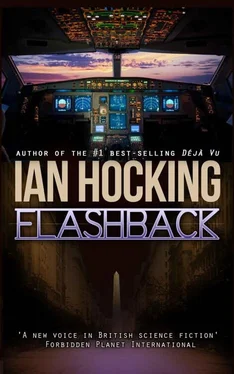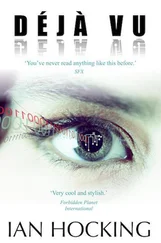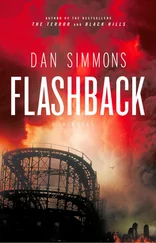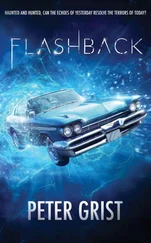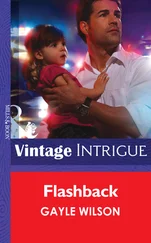September, 1947: Converted Lancaster bomber ‘Stardust’ reports a successful trans-Andean flight from Buenos Aires to Santiago, and signals its intention to land. Four minutes prior to touchdown, it sends the letter sequence ‘S-T-E-N-D-E-C’. Queried by puzzled ground controllers, the young ex-RAF operator aboard the Stardust rapidly keys ‘STENDEC, STENDEC’. Then silence. The Stardust vanishes along with all passengers and crew.
October, 2003: German Air flight A628 impacts vertically with the Bavarian National Forest. The only clue to its fate is the co-pilot’s final transmission, spoken against the roar of failing engines: ‘Stendec.’
Within hours, air safety investigators have been dispatched to the crash site. Investigator-in-charge Hrafn Óskarson has more questions than answers. Who erased the flight data recorders? What is the true identity of passenger Saskia Dorfer, whose documents have proved fake? Who torched her Berlin apartment? Why did Saskia’s English friend Nina Shaw refuse to board the flight?
The mystery of German Air flight A628 will be solved by a startling conspiracy that reaches twenty years into our future—and fifty years into our past, to the final moments of the Avro-Lancastrian ‘Stardust’.
So there we go. Now all I have to do is work out what the bloody mystery is. It had better be good.
PS: There really was a Avro-Lancastrian called ‘Stardust’ that crashed in the Andes in 1947. You can read all about it here.
An excerpt from my blog, 16th May, 2007. Read the original.
It’s a slow old business, is writing. The stretches of time involved are so staggering that I wonder how I manage to keep the story on the rails. Well, it’s reaching that happy time when a book is finished. This is ‘finished’ in the comedy sense employed by all writers, of course, which is usually defined as ‘wait till you get the editor’s report, Sonny Jim’.
I speak of none other than Flashback. It’s been a year and a half since I had an idea about a character from my first book, Saskia, who had travelled back in time to the year 2003 (with a chip in her brain that provides her personality, and so on and so forth). Saskia knows that, in the year 2023, she will be around to save someone’s life. So her death would represent a time paradox. Result: She cannot be killed. She is as indestructible as Cap’m Scarlet—SIG. But, I thought, death isn’t the only way a person can be in jeopardy (as I thought this, I dry-washed my hands evilly and stroked a gerbil).
Then I had another idea. Let’s say you’re a time traveller. You’re stuck in the past. You know that the ‘present’ (‘when’ you come from) will eventually pass in its exact form, otherwise ‘you’ won’t be ‘you’. You’d be someone else. It’s akin to shuffling your genes; that would make you your brother or you sister. Anywho, if you spend long enough in the past, you might come to think that all these people are zombies acting out a scripted existence with no free will. But, of course, you have free will because you’re from the present, aren’t you? But if the state of the universe at a given point is fixed, you must be fixed as well. Meet paradox number two.
I think most people would be driven slightly bonkers by this. Not Saskia, though. She’s made of sterner stuff. But the second time traveller—whom would be the ‘villain’ of this piece—has been shanghaied in the past for sixty years, and he is loop da loop.
Mixed up with my favourite quote from William James (‘I will act as though what I do makes a difference’), and the mystery of a certain aeroplane crash, I decided to write a book.
Over the past couple of weeks, I’ve been getting some feedback from readers (on the first couple of chapters at least). Feedback is a tricky process. Some people are better at giving it than others; some can identify what needs to be done to correct the manuscript, whereas others have no idea; but all feedback is useful. It allows you to get inside the head of a reader somewhat.
The shortcomings of Flashback are two-fold right now. First, my prose style in the first couple of chapters—where I’m obviously trying very hard—has become so hardboiled that, unless the reader is working out the implications of every scrap of dialogue, they can’t know what’s going on and feel stupid. I put this down to ‘high standards’ (the quote marks are to signal to the irony, since the product doesn’t seem to achieve this) and reading Cormac McCarthy and Thomas Harris. After The Road, I don’t think I’ll be able to write the same way again. But poetic prose doesn’t have to be obscure; you don’t need to write cryptically to write well. After all, McCarthy has been writing for years. I need to weed out the self-conscious metaphors, and put in about forty years more writing practice. One of my reviewers wrote, ‘If you publish this, you’ll be the first person since Virgil to write a thriller in poetic verse!’ I thought that was wonderful.
The second shortcoming follows closely on the heels of the first: obscurity. Because I’m a fan of McCarthy and Raymond Chandler and others for whom the style is equal to, and occasionally outguns, the plot, I’m quite used to narratives where the reader is not party to the motivations or specific driving factors of the character until later in the story. Now, this is obviously a dangerous game to play, and you’ve got to get the balance right. Readers won’t follow characters they don’t identify with in some sense. So… the lack of information has got to be an interesting lack. When you read about a mystery like the loss of the Star Dust, the absence of an accepted explanation isn’t actually irritating; it’s a positive force that makes you want to know more, and makes you interested in the story itself. You feel like you are about to discover something. This kind of anticipation can make twists (i.e. re-configurations of a story’s identity) quite powerful, and I used it a great deal in Déjà Vu. It’s something I need to get right in Flashback, and the solution will be to go slightly easier on the reader. I want to avoid the fatal pitfall of, with apologies to his fans, Murakami’s Kafka on the Shore.
So these are just some random thoughts about the editing process. Back to work.
An excerpt from my blog, 26th January, 2006. Read the original.
Well, I must confess to a couple of shitty days, work-wise.
First up, I noticed that some joker—no, I won’t provide the effing link—has placed Déjà Vu in his top five worst books of 2005. At that point, I wasn’t having a bad day. It was just middlin’. Next, I get one of those standard ‘Sorry, try again,’ emails from MacMillan New Writing; I’d sent them my comedy novel ‘Proper Job’, which an agent recently wrote was ‘fresh, lean, original and inventive’ (though, to be fair, that same agent did go on to say that humour is virtually impossible to sell, and I should give up immediately). By then, I would describe my mood as ‘mildly piqued’. Gumblings: Hah! What do they know? I’ll show ’em. Etc.
Then, to round off the day, I get a call from the agent who is currently considering Déjà Vu. You might remember from a previous post that Scott Pack, chief buyer for Waterstone’s, saw this blog and asked for a copy of my book. He read it and enjoyed it. Amongst other things, he said, ‘the thriller element would hold its own with most of the books we sell in quantity…the characterisation was very strong…the ending left me impressed as I put the book down’. Scott then contacted some literary agents, one of whom contacted me. We chatted on the phone and I sent him a copy of Déjà Vu.
Читать дальше
